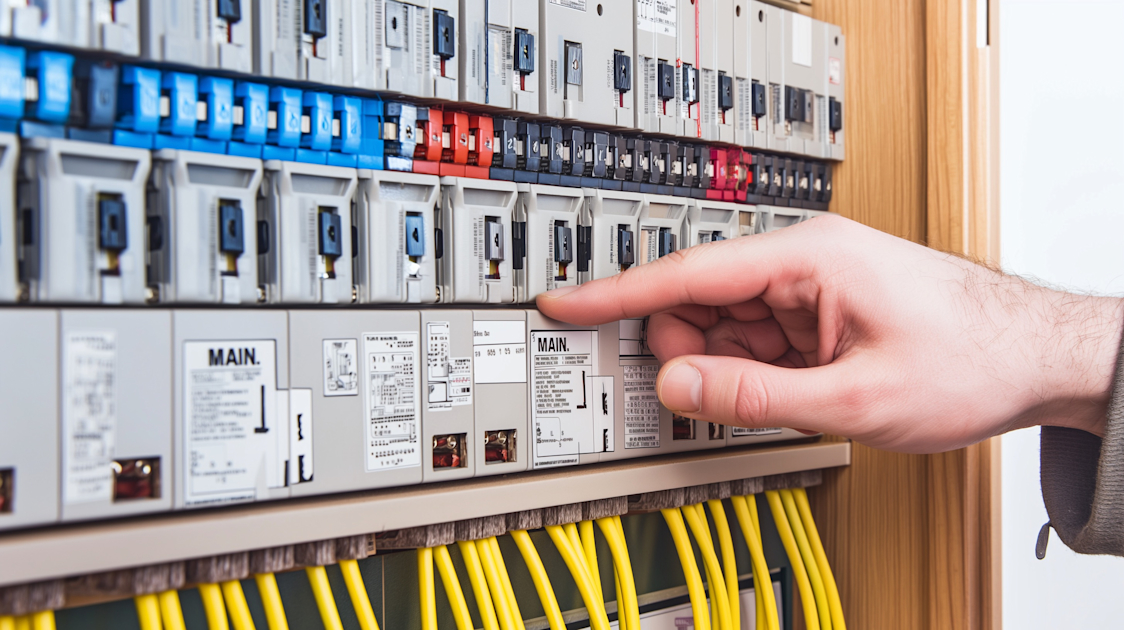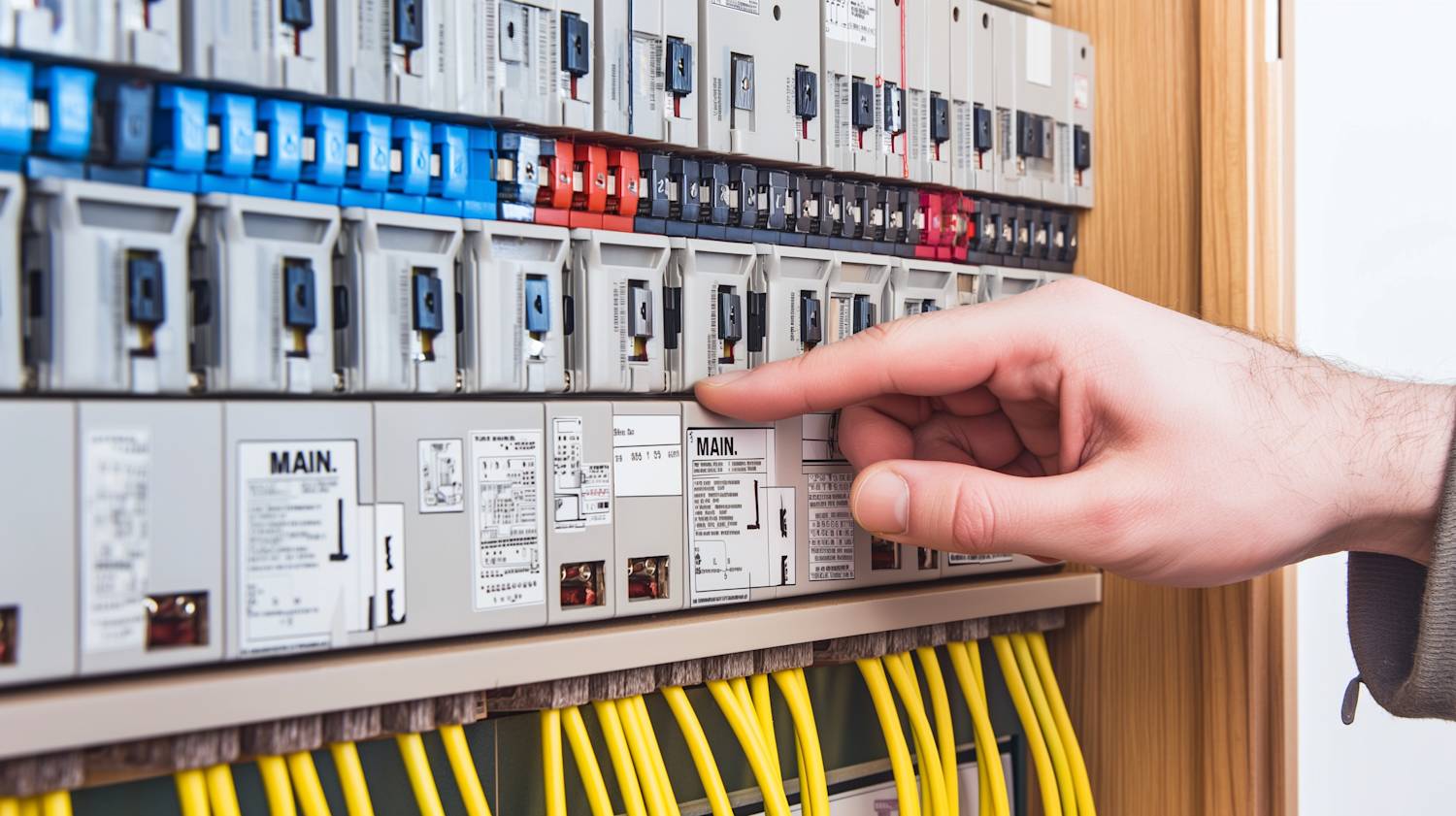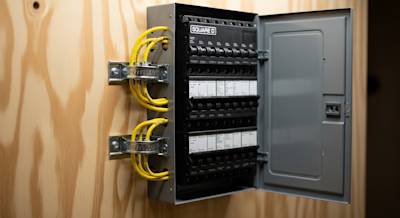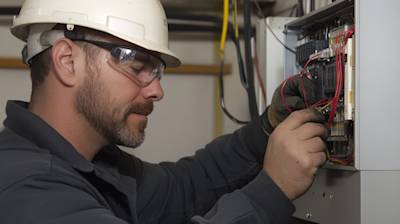In the vast world of home and commercial electrical systems, there are two main types of electrical service panels that come to mind, the fuse box and the breaker box. Regardless of whether you are building a new property or renovating an existing one, understanding the differences between a fuse box and a breaker box is crucial. Both provide the same functionality – protection against electrical overloads and shocks, but their working mechanisms, reliability, and safety standards differ. Let's unravel these concepts and help you to understand better which one works for your specific needs.
Introduction to Fuse Boxes
A fuse box is a type of electrical service panel that uses fuses to protect the wiring of each circuit in your home. This type of panel is typically found in older homes, dating back to the mid-1900s. A fuse is a simple piece of metal that melts when overheated, thus breaking the circuit and stopping the flow of electricity. This is a basic, yet effective method of protecting against electrical overload.
Components and Working of Fuse Boxes
-
Fuses: In a typical setup, each circuit is designed for a specific Amp rating, which is handled by correspondingly rated fuses. When an overload occurs, this specific fuse 'blows', therefore immediately cutting off the power supply to prevent damage.
-
Renewal: One significant point about fuse boxes is that once a fuse has blown, it must be replaced with a new one to restore power to that circuit. This isn't necessarily a quick fix, especially if the overload occurs at an inconvenient time when spare fuses might not be accessible.
Introduction to Breaker Boxes
A breaker box, also known as a circuit breaker panel, is a modern electrical service panel that has largely replaced fuse boxes in new homes and during the upgrading of older electrical systems. It also provides circuit protection but offers some added advantages such as the ease of resetting a tripped breaker, rather than having to replace a blown fuse.
Components and Working of Breaker Boxes
The main parts of a breaker box are:
-
Breakers: These are the switches that control the power supply for each circuit. While they handle the same roles as fuses, breakers provide an easier solution when a circuit is overloaded.
-
Tripping and Resetting: Unlike a fuse which blows and needs replacement, a breaker 'trips' when an overload occurs. This means that it automatically switches itself off to interrupt the power supply. Importantly, a tripped breaker can easily be reset by turning the switch back to the 'on' position, thus restoring power to the circuit. This eliminates the need for having replacement fuses on hand.
Fuse Box vs Breaker Box: Understanding the Differences
Let’s now delve into the main differences that distinguish the two, helping you make an informed choice based on your specific situations.
Safety
In an event of an overload, breaker boxes have an advantage because they simply trip and can easily be reset. Fuse boxes, on the other hand, blow out and require replacement. If replaced with a fuse of incorrect rating, it can lead to a higher risk of electrical fires. On the safety front, breaker boxes come out ahead.
Convenience
Breaker boxes certainly have the upper hand when it comes to convenience. If a circuit gets overloaded, you simply reset the breaker. But if a fuse blows, you have to locate and replace the fuse, which can be frustrating and time-consuming.
Cost
Fuse boxes and their components are generally cheaper to replace. However, its recurring cost should be considered as every blow out would require a new fuse. The initial cost of a breaker box may be higher, but in the long run, it can be more cost-effective due to its reusability and durability.
The choice between a fuse box and a breaker box boils down to considerations on safety, maintenance concerns, levels of convenience, and cost effectiveness. Having a professional assessment of your electrical needs can also go a long way in making the right choice.
Frequently Asked Questions: Fuse Box vs. Breaker Box
What is a Fuse Box?
A fuse box is an old type of electrical service panel that uses fuses instead of circuit breakers to protect the circuits in your home. When a circuit draws too much power, the fuse will blow to prevent overheating and possibly a fire.
What is a Breaker Box?
On the other hand, a breaker box, often referred to as a circuit breaker panel, is a more modern solution for managing excessive electrical loads. Instead of blowing a fuse, it flips a switch to disrupt the flow of electricity when a circuit is overloaded or short-circuited.
What is the Primary Difference Between a Breaker Box and a Fuse Box?
The primary difference between a fuse box and a breaker box lies in the way these panels handle electrical overloads. When a fuse box encounters an overload, the concerned fuse needs to be replaced. Conversely, with a circuit breaker box, when the circuit exceeds its capability, the breaker switch simply needs to be reset.
Can a Fuse Box and a Breaker Box be Interchanged?
While technically possible, it's generally not advisable to interchange a fuse box and a breaker box. Upgrading from a fuse box to a breaker box typically requires the services of a professional electrician and may involve rewiring parts of your home, which could add significant cost.
What is safer: a Fuse Box or a Breaker Box?
While both methods serve to protect electrical circuits from overload, breaker boxes are generally considered safer and more convenient than fuse boxes. This is primarily because you can promptly reset a triggered circuit breaker, while a blown fuse needs to be replaced with a new one.
Why are Fuse Boxes Generally Replaced with Breaker Boxes?
Fuse boxes are typically replaced with breaker boxes due to the latter's greater efficiency and safety. Breaker boxes are also more user-friendly and can handle the electrical demands of modern household appliances better.
Is It Necessary to Replace My Home's Fuse Box with a Breaker Box?
If your home still uses a fuse box, it may not be necessary to upgrade to a breaker box unless you're experiencing frequent blown fuses or if the fuse box doesn't meet current electrical code for your area. However, an upgraded box can certainly enhance safety and accommodate higher electrical loads.
How Much Does it Cost to Replace a Fuse Box with a Breaker Box?
The cost of replacing a fuse box with a breaker box can vary widely depending on your home's specific needs and the region where you live. It's always best to consult with a licensed electrician to get an accurate estimate.
Can I Replace a Fuse Box with a Breaker Box Myself?
Replacing a fuse box with a breaker box involves high voltage electricity and should be done by a licensed electrician to ensure safety and compliance with local building codes.
Pros and Cons: Fuse Box vs. Breaker Box
PROS
Advantages of the Fuse Box
-
Simplicity: Fuse boxes are incredibly simple in design, which makes them easy to use and understand.
-
Immediate Response: The fuse box system reacts instantly during a power surge or overload. The fuse, a metal strip that melts when overheated, breaks the circuit and prevents potential damage to electrical appliances and fire risks.
-
Cost-effective: Fuse boxes are less expensive compared to breaker boxes. The cost of replacing a blown fuse is also generally cheaper than repairing or replacing a circuit breaker.
-
Safety: Because it disconnects instantly during overloading, a fuse box can be considered a safer option as it minimizes the chance of an electrical fire.
Advantages of the Breaker Box
-
Ease-of-Use: Operating breaker boxes are straightforward. Just flip the switch back to restore power once the issue causing the outage has been addressed.
-
Reuse: Unlike a fuse which must be replaced once it has blown, circuit breakers can be reset numerous times after they've tripped.
-
Individual Circuit Identification: Breaker boxes often offer a clear and concise mapping and labeling system for individual circuits, which can make identifying and resolving issues easier.
-
Modern Compliance: Breaker boxes are more aligned with modern electrical codes and requirements, making them an ideal choice for new properties or remodeling projects.
CONS
Disadvantages of the Fuse Box
-
Replacement: When a fuse blows, it must be replaced. This could become a hassle if fuses frequently blow, requiring constant replacements.
-
Compatibility: Because fuse boxes are an older technology, they may not be compatible with modern electrical needs and standards. Upgrades might be necessary for higher power requirements.
-
Incorrect Size Issues: Using the wrong size of fuse can lead to issues. If a higher-rated fuse is used, it may not blow when needed, potentially causing a fire hazard. Conversely, using a lower-rated fuse can cause it to blow too frequently.
Disadvantages of the Breaker Box
-
Cost: Breaker boxes are generally more expensive than fuse boxes, both in terms of initial cost and repair or replacement costs.
-
Slower Response: Compared to fuse boxes, breaker boxes may be slower to respond to power surges, potentially risking damage to appliances or even causing an electrical fire.
-
Wearable Parts: Unlike fuses in a fuse box, the switches in a breaker box can wear out over time, requiring replacement.
-
Incorrect Tripping: Circuit breakers can be prone to "nuisance tripping," wherein they trip under normal conditions due to sensitivity to certain factors such as high ambient temperatures.
Summary
When it comes to safety and convenience, the breaker box has a definite edge over the traditional fuse box. It's the more modern solution that gives homeowners the ability to instantly reset the circuit after an overload. Comparing a fuse box vs breaker box, the latter stands as a more simplified method of maintaining and monitoring electrical systems in residential and even commercial settings.
Fuse boxes, on the other hand, are an older technology and come with their own sets of challenges. While they do the job of protecting your appliances and systems from electrical surges, they're often seen as less user-friendly because fuses have to be replaced rather than simply reset. This can sometimes be a difficult and costly process. For folks finding themselves frequently replacing fuses, switching to a breaker box could be a welcome change.
At the end of the day, whether you're choosing a fuse box vs breaker box, both can effectively protect your home's electrical system. The best choice for you will depend on your specific needs and circumstances. You could favor the lower cost and simple construction of a fuse box or the user-friendliness and easy maintenance of a breaker box. Either way, ensuring your electrical system is protected is essential.
About Sagan Electric
Welcome to Sagan Electric, your trusted electrical partner in Sacramento, CA! We are a professional, reliable, and dedicated electrical company that focuses on high-quality service and customer satisfaction. With our expertise in a broad range of electrical services, we are adept at handling both residential and commercial projects, always aiming to execute them with precision. Count on us for a seamless electrical experience tailored to meet your needs!
Tags: electrical system, home improvement, circuit protection,








